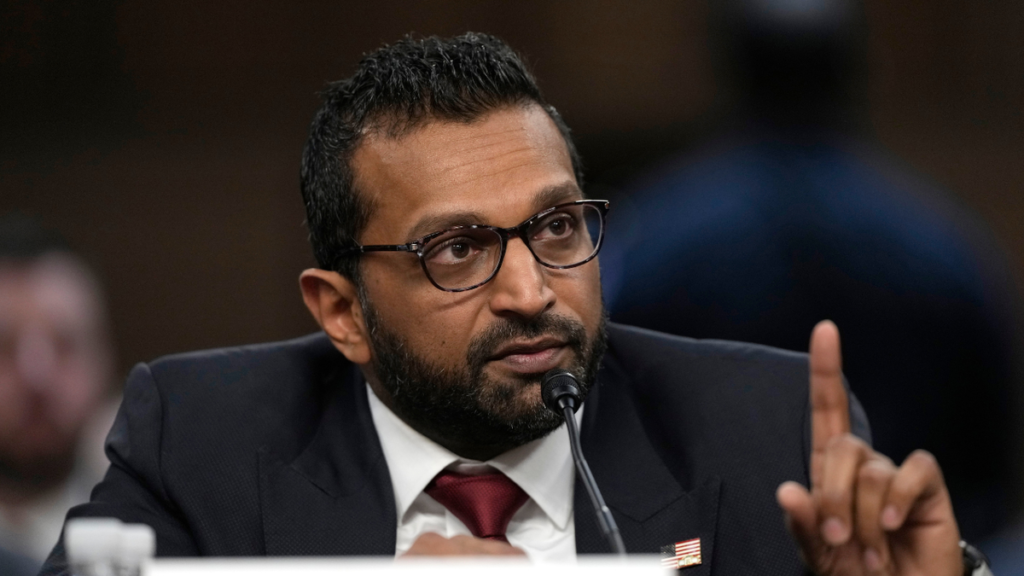In October 2025, FBI Director Kash Patel announced the disbandment of the CR-15 squad, a unit within the Washington Field Office that had monitored the communications of Republican lawmakers. This surveillance was part of the so-called “Arctic Frost” investigation, led by former Special Counsel Jack Smith, into alleged efforts to overturn the 2020 presidential election. The records obtained included metadata—call times, durations, and recipients—for Senators Lindsey Graham, Josh Hawley, Ron Johnson, Marsha Blackburn, Cynthia Lummis, Bill Hagerty, Dan Sullivan, and Tommy Tuberville, as well as Representative Mike Kelly. Notably, the content of the communications was not captured. Lawmakers, including Senator Chuck Grassley, likened the surveillance to Watergate, and former President Donald Trump condemned it as politically motivated, an abuse of government power, and an affront to the Constitution.
At the heart of this scandal is a fundamental question: How far can the federal executive branch extend its power before violating the Constitution? The First and Fourth Amendments provide clear guardrails. The First Amendment protects freedom of speech and association, particularly for lawmakers carrying out their legislative duties, while the Fourth Amendment prohibits unreasonable searches and seizures. Collecting metadata on elected officials without judicially sanctioned warrants or probable cause strikes directly at these constitutional protections. As James Madison warned in Federalist No. 51, the government’s power must be checked to prevent the “accumulation of all powers” in a single branch.
History has shown the dangers of unchecked intelligence power. From the FBI’s surveillance of civil rights leaders in the 1960s to the monitoring of political dissidents during the 1970s, abuses of authority provoke public outrage and require institutional reform. The CR-15 episode echoes those periods of overreach, highlighting the persistent risk that federal agencies may act with political bias under the guise of law enforcement.
The political ramifications are stark. Republican lawmakers argue that the surveillance was intended to intimidate and discredit opposition voices. Democrats, in turn, emphasize national security and election integrity. However, these competing narratives cannot obscure the constitutional principles at stake. Metadata collection may be technically legal under certain investigative protocols, but the targeted surveillance of lawmakers undermines legislative independence—a cornerstone of a functioning republic as mandated under Article I of the Constitution.
Calls for accountability are mounting. Senator Cynthia Lummis has demanded full disclosure of the names of officials involved and the legal justification for the data collection. Such transparency is essential not only for restoring public trust but also for enforcing the principle that no one, including federal agents, is above the law. As the Supreme Court has repeatedly affirmed, governmental power is constrained by constitutional checks to protect individual liberties, as seen in landmark cases such as United States v. United States District Court (1972), which emphasized the need for judicial oversight in domestic surveillance.
Opponents may argue that national security and election integrity justify these measures, claiming that metadata collection does not infringe on constitutional rights. Others point to grand jury authorization as proof of legality, or suggest that criticism is politically motivated. While these points may carry surface plausibility, they fail to address the deeper concern: elected representatives must operate free from surveillance by the very agency sworn to protect the law. Anything less erodes the foundational separation of powers and invites the misuse of law enforcement for partisan purposes.
Moving forward, several critical questions demand attention: What safeguards are necessary to prevent federal surveillance from encroaching on constitutional rights? How can Congress ensure accountability within intelligence agencies while maintaining their operational effectiveness? What reforms are necessary to restore trust in federal law enforcement, and how can the FBI address allegations of political bias to maintain legitimacy? Each question underscores the delicate balance between national security and individual liberty, a balance the Constitution requires and the American people expect.
The disbandment of the CR-15 squad is more than an administrative action—it is a stark reminder that constitutional liberties are fragile and must be actively defended. For conservatives, constitutionalists, and all Americans who value the rule of law, the message is clear: government power is not unlimited, elected officials are not fair game for politically motivated surveillance, and the principles enshrined in the Constitution must guide every action of federal authority.


